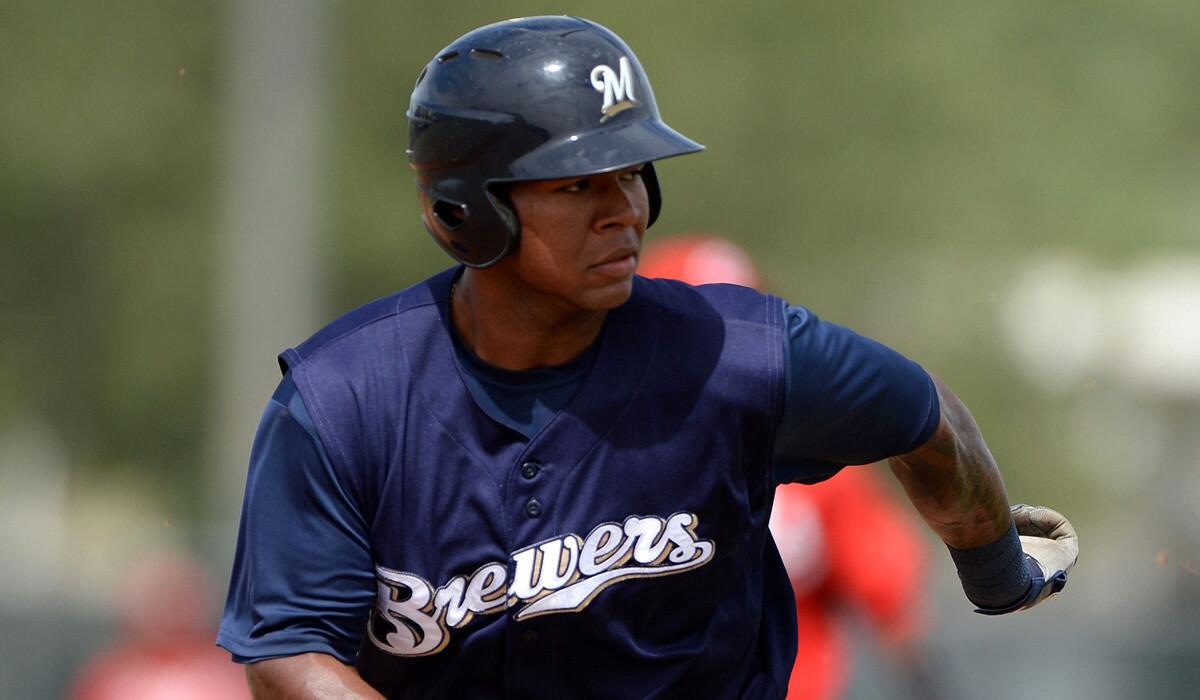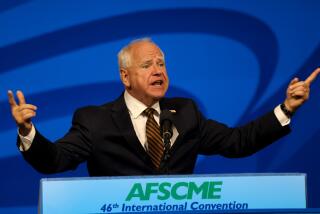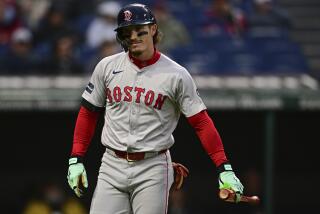David Denson, pro baseball’s first openly gay player, has help on his journey

Milwaukee Brewers first baseman David Denson runs between bases during an Instructional League game against the Cincinnati Reds on October 6, 2014 in Phoenix.
Billy Bean knows how painful it can be to keep a secret.
Twenty years ago he was an outfielder with the San Diego Padres. That part everybody knew.
But what almost nobody knew, not even his mother, was that he was gay.
There had never been an openly gay male in a major professional team sport in the U.S. And no one knew whether a gay athlete would be accepted in those locker rooms and clubhouses.
Two decades later gay marriage is the law of the land and there are a record seven gay members of Congress. Yet there still had not been an openly gay professional baseball player when Bean got a call from a struggling 20-year-old minor leaguer named David Denson last spring.
“Can I talk to you?” Denson asked.
For Bean, that question brought things full circle. His desire to keep his sexuality a secret had led him to play in the Padres’ final spring training exhibition game in 1995 hours after his partner, Sam, had died from AIDS-related causes.
“When Sam died . . . I could barely hold it together because I wanted to tell somebody I had a terrible day,” he said. “But you just cover it up. A lot of athletes are wired that way. It was just a different time.”
He played just four big league games after Sam died, quitting the sport rather than revealing his secret. Then last summer he was hired by Major League Baseball as the sport’s first “Ambassador for Inclusion,” a job that had him taking calls from a frightened minor leaguer who sounded on the verge of an emotional breakdown.
“He was tired of remembering who he told and who he hadn’t told. He just wanted to play with a clear head,” Bean said of Denson.
Then, speaking of his own experiences, Bean added: “It’s so difficult to explain how hard it is to lie about your personal life all the time. And how demeaning that is.”
Last month a teammate unwittingly gave Denson, who plays for the Milwaukee Brewers’ rookie league affiliate in Helena, Mont., the opening he needed to change that, addressing him with an ugly epithet used to refer to gay men. The term was meant in jest but it wasn’t funny to Denson.
He began to speak emotionally, then it turned personal. By the time he admitted he was gay, most of the team was listening.
“I wasn’t trying to force this on anybody,” said Denson, who believed the stress of leading a double life was hurting his play. “I just wanted to give the game all of myself and see where I can go.”
To Denson’s relief, his teammates responded with congratulations, not condemnation; praise, not persecution.
“It’s been amazing,” said Denson, who answered a half-dozen questions from Dustin Daniel, the Helena Brewers’ radio broadcaster, but has done no other interviews since coming out publicly in the Milwaukee Journal Sentinel last weekend.
“Knowing that my teammates, my brothers, have my back in this situation and that they’re judging me as a person and not for my sexuality means a lot to me.”
The newspaper story was Bean’s idea. A clubhouse confession was fine, but until Denson came out openly in the widest possible forum, it wouldn’t be enough to relieve his burden.
“He has said that it feels like a weight has been lifted,” Helena Manager Tony Diggs said. “Davidhas always been a hard worker, a guy who is committed to getting the very most out of his abilities. Nothing has changed with that.”
Over the last five months Bean has quietly counseled Denson, a power-hitting first baseman who, as a senior at West Covina South Hills High, crushed a 515-foot home run off the scoreboard at Marlins Park in Miami during a prep showcase. No big leaguer has ever hit a ball that far there.
But as a pro, Denson, who bats left-handed, has been more miss than mash, collecting more strikeouts (210) than hits (147) and more errors (22) than homers (15) in nearly 200 games on the lowest rungs of the minor league ladder. Bean agrees the pressure Denson felt trying to keep his public and private lives separate contributed to those struggles — and nearly led to bigger problems.
Depressed and possibly headed for a breakdown last spring, Denson went to see a counselor who advised him to come clean about his sexual orientation. So he told his sister Celestine, who surprised him by saying she had known all along.
His parents, Lamont Denson and Felisa Gomez, took a little longer to come around.
Eventually David Denson went to the Brewers, the Milwaukee paper reported, crying as he informed farm director Reid Nichols and two minor league coaches that he was gay. The trio lauded Denson’s courage, then kept his confidence.
Next Denson turned to Bean, who had long campaigned for baseball to change its culture in regard to the LGBT community. MLB hired him 13 months ago to educate players and league employees about sexism, homophobia and racism, and help create an atmosphere of acceptance around the game.
Within months of Bean’s hiring two MLB club employees came out — one during a Bean presentation. Then came the phone call from Denson.
“He had never really spoken to another player or former player that understood what his life was like,” Bean said. “It just started there. I tried to explain to him — because I had sort of lived through it — all the options that could possibly affect a decision like this. Good and bad.”
It many ways Denson’s decision was as historic as it was life-changing. Bean and former Dodger Glenn Burke both came out as gay only after they had left baseball, in part because of the pressure of keeping their homosexuality a secret. And other professional sports have equally spotty records: After Jason Collins came out in 2013, he started just one more NBA game. In football Michael Sam trained with two NFL teams and played briefly in one Canadian Football League game this summer before walking away from the game, saying he was “concerned with my mental health.”
In the five major men’s professional team sports in the U.S. and Canada, Robbie Rogers, who won a Major League Soccer title with the Galaxy last year, is the only player to thrive on the field after coming out.
Bean believes Denson can be the next.
“He had some setbacks this summer,” Bean said. “He had some great days and some tough ones. But he’s only 20. And he’s of a different generation.
“I did not have great self-esteem about being gay when I was playing. I thought it was the curse of my life. And he doesn’t have a problem with it.”
In that way Denson has already succeeded in changing the landscape. But Bean says the bigger goal is to create an environment in which players not only feel comfortable in the clubhouse and on the field, but one in which the sport and its stars can carry a message of inclusion into classrooms and onto playgrounds where being different often means being picked on.
“You can save lives, you know?” Bean said. “If a kid hears Mike Trout or a Bryce Harper talk about how everyone on your team is a brother and it’s a family, then you start eliminating bullies on the elementary school level and the junior high level.
“You have no idea. It’s just right there.”
Twitter: @kbaxter11
More to Read
Go beyond the scoreboard
Get the latest on L.A.'s teams in the daily Sports Report newsletter.
You may occasionally receive promotional content from the Los Angeles Times.











